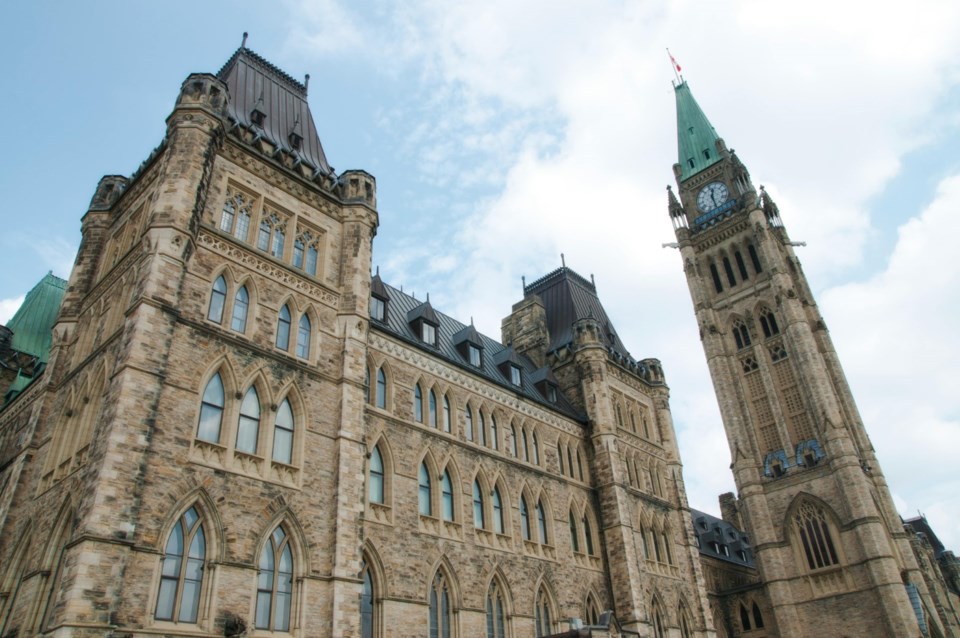To understand how politicized Canada’s courts have become, one must understand how judges once viewed their role—not as policymakers, but interpreters of laws and the Constitution.
In 1982, the late Supreme Court of Canada Chief Justice Bora Laskin said judges have “no freedom of speech to address political issues that have nothing to do with judicial duties… Absolute abstention from political activity is one of the guarantees of impartiality, integrity and independence.”
That was then. Post-Charter (also introduced in 1982), too many judges have internalized the “living tree doctrine”—that the Constitution continually adapts to “evolving” social and political contexts—and are increasingly advancing expansive positions based on political ideology.
The result is that governments, elected to pass legislation, are unable to tackle important issues from homelessness to climate policy without being overruled by the courts. They are spending millions fighting Charter challenges—often brought by only a handful of complainants.
Just recently, Ontario’s Superior Court sided with just two University of Toronto students to stop the provincial government from dismantling bike lanes to ease traffic congestion. Under the Charter’s Section 7 (Life, Liberty, and Security of the Person), the government cannot, ruled the court, “knowingly make the streets less safe.” Talk about begging the question. Meanwhile, an effort by the Ontario government to dismantle drug injection sites, including near schools and daycares, is on pause pending another Section 7 legal challenge.
In another case with major precedent impact across the country, Ontario’s Superior Court held in 2023 that homeless encampments must effectively remain in place until shelter spaces are found for every resident. The City of Waterloo’s attempt, via municipal bylaw, to dismantle a 70-structure homeless encampment on city property was held to violate—once again—Section 7 of the Charter. Stated the court: “The constitutional right to shelter is invoked when the number of homeless exceeds available and truly accessible shelter spaces.”
The same court agreed in 2023 with just seven environmental activists challenging Ontario’s climate plan that it is an “indisputable fact that Ontarians are experiencing an increased risk of death” from climate change.
According to Ecojustice lawyer Fraser Thomson, who represented the activists, the ruling “effectively boxes Ontario in and subjects its climate record to full Charter scrutiny.” The Supreme Court recently denied Ontario’s appeal request in the case, which is now heading back to court. This, as similar youth-led climate cases are making their way through the courts in other provinces.
Meanwhile, last month’s International Court of Justice’s ruling that a clean environment is a “human right” was hailed by climate activists as a major victory which will inform future court decisions and legal challenges—including to the new federal major projects Bill C-5.
Courts ought not be the exclusive arbiters of social and economic policy—genuine concerns about issues such as climate policy or homelessness, notwithstanding.
So, what to do?
For now, premiers are increasingly looking to the Notwithstanding Clause. Routinely called the “nuclear option,” it’s actually a perfectly legitimate use of Section 33 of the Charter—and the most powerful tool governments have to assert parliamentary sovereignty.
A constitutional scholar and former NDP premier of Saskatchewan, Allan Blakeney, would agree. Blakeney fought hard for the clause’s inclusion in the Charter and wrote, in 2010, that the state could invoke it for “economic or social reasons, or because other rights are more important.”
Let’s not forget that from 1982 to 1985, Quebec “notwithstood” everything—and that doesn’t mean one must agree with its every usage. The point, a la Blakeney, is that it is the only mechanism to reassert some parliamentary supremacy. More recently, Quebec and Alberta have talked about forming an “autonomy alliance,” which would create a “special deliberation mechanism for legislative bills and include the Notwithstanding Clause to dissuade court challenges.”
If only such a mechanism could reform federal catch-and-release laws.
In 2023, Justice Harrison Arrell released violent offender Randall McKenzie, citing Criminal Code-embedded bail rules that mandate “vulnerable population” considerations. “It’s a very iffy case,” Arrell wrote. “I appreciate all the violence in his record, but part of that is his native background, education and employment opportunities.”
Six months later, McKenzie killed OPP Constable Greg Pierzchala. The shocking case highlighted 2018 federal Criminal Code amendments, which codified the “principle of restraint”—that bail must be granted at the “earliest possible opportunity” on the “least onerous conditions.”
Despite limited subsequent tweaks to the Criminal Code by the federal government, nothing fundamentally has changed.
When asked whether Canada is “soft on crime,” Sean Fraser, Canada’s new minister of justice and attorney general, said we “can’t operate in the space of slogans and soundbites.”
Indeed.
Hon. Bronwyn Eyre, LLB, is a Senior Fellow with the Aristotle Foundation for Public Policy, Saskatchewan’s former minister of justice and attorney general—the first female to hold each position—and a former long-serving minister of energy.
The commentaries offered on SaskToday.ca are intended to provide thought-provoking material for our readers. The opinions expressed are those of the authors. Contributors' articles or letters do not necessarily reflect the opinion of any SaskToday.ca staff.




